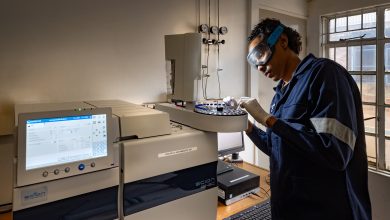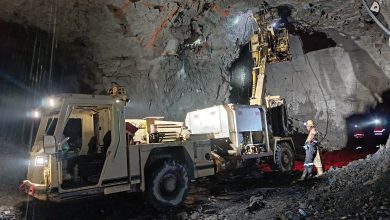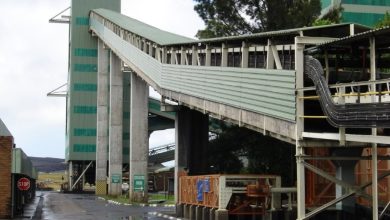
Accelerating mining water conservation in South Africa through advanced treatment methods
By Mante Kgaria, Senior Process Engineer at Multotec
Water plays a vital role not only in sustaining life, but also in various industries, ranging from agriculture and food production to mining and manufacturing. However, in specific parts of the world, water is rapidly becoming a scarce resource.
South Africa is a water stressed country, and according to ESI Africa, it will approach a state of physical water scarcity by 2025, with a 17% water deficit anticipated by 2030. The expected water scarcity and recent droughts experienced in the region pose a serious challenge to socio-economic development. Thus, wastewater treatment for recycling and reuse, is vital to alleviate the strain on the country’s already limited water resources. This is critical especially in industries such as mining, whereby large volumes of water is used in mineral processing to recover valuable metals from ore.
Mining water conservation
Recycling and re-using water can help mining companies reduce their reliance on potable water. However, this remains a challenge for many due to the multiple waste streams generated by their activities. The waste streams contain different types of contaminants which vary depending on the geolocation of the mine, the mineralogy of the host rock being extracted, and the processing techniques employed.
These may include carcinogens like uranium, arsenic, and heavy metals such as calcium and magnesium. These contaminants are a hazard if released to the environment or may cause process inefficiencies if the water is recycled as process water without any treatment process. Consequently, effective water management strategies are essential for mining companies to maintain a balanced water usage and for effective re-use and recycling of water.
The management of contaminants before releasing wastewater into the environment will depend on the specific guidelines stipulated, such as International Finance Corporation (IFC), World Health Organisation (WHO) and national regulating authorities such as the Department of Water Affairs and Forestry (DWAF) in South Africa. There is an imperative need for mining companies to treat the water for recycling and re-use to comply with the regulatory frameworks and for the sustainability of their operations. Water treatment specialists such as Multotec, play a vital role in offering tailor made solutions to assist operations with achieving a consistent and reliable source of clean water for sustainable operations.
Water treatment technologies offered by Multotec in collaboration with its technology partners operate at ultra-high-water recoveries, capable of reducing hardness and conductivity, thus making water suitable for re-use as process water without compromising process efficiency. The suite of water treatment technologies offered by Multotec can substantially reduce potable water consumption and increase water re-use efficiency.
Multotec’s technology offering ranges from state-of-the-art Continuous Ion Exchange (CIF®) technology to convectional wastewater treatment plants that include precipitation and membrane technology. The CIF® technology offers ultra-high-water recovery, low reagent consumption and can be configured as a zero liquid discharge. Speciality technologies such as DESALX® and HIROX® can be used to treat mine wastewater to an acceptable quality for re-use by removing contaminants through ion exchange while simultaneously performing physical filtration, tolerating suspended solids in the feed.
Additionally, Multotec, in collaboration with its partners, also offers BIOCLENS™ technology, whereby bacteria with high nitrification or denitrification activity are encapsulated in lenses for total nitrogen removal. The encapsulation provide protection of the bacteria in saline environments, toxic feed compounds and extreme weather conditions, thus ensuring high removal activity. As the lenses are stirred in a reactor, water and dissolved impurities diffuse through the lenses and encounter the bacteria, where targeted reactions occur. The BIONCLENS™ technology is more robust than conventional biological treatment processes, capable of achieving less than 1 mg/L TN and high removal efficiencies in extreme weather conditions.
The water treatment plants offered by Multotec are designed to minimise operational expenditure and ensure techno-economic feasibility without adding financial pressure. Multotec’s modern water treatment plants also incorporate the concept of zero liquid discharge thus minimising environmental pollution and solid waste handling stream. The choice of technology will generally be determined by the contaminants that have to be managed and the water quality that the client is seeking.
Water stewardship is critical for environmental impact management and sustainability throughout the mine life cycle. An integrated water management plan that includes various water sources and respective qualities is required for effective re-use and recycling. This calls for efficient and innovative technologies to treat mine wastewater to enhance re-use and recycling, thus minimising portable water consumption. By engaging a qualified and experienced water treatment specialist company, mines ensure that they have adequate water reserves and mitigate the risk of water scarcity.






